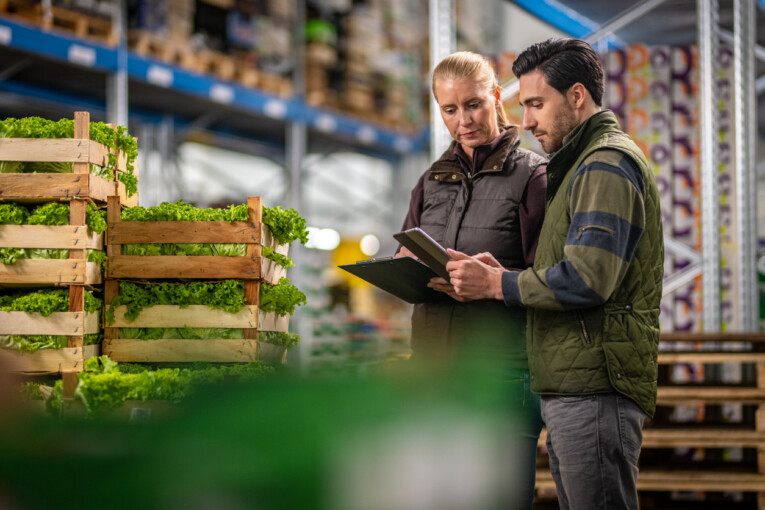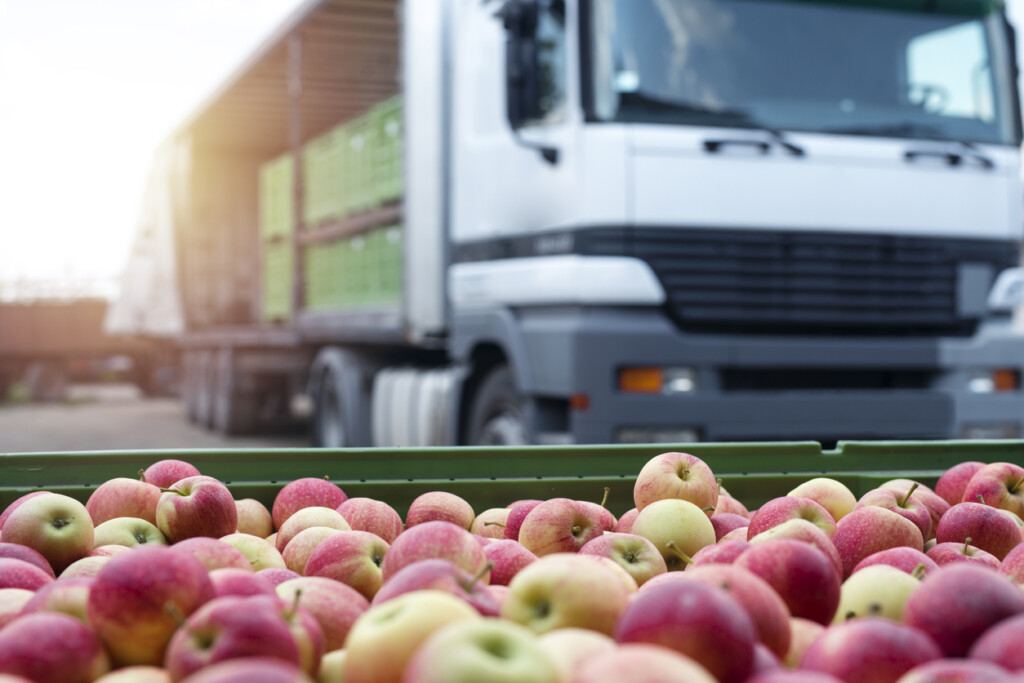What are the most important aspects of the modern supply chain? Trust and communication. If the last two and half years have taught the logistics industry anything, it’s that supply chains of all sizes, from local to international, are extremely fragile.
As we’ve explored before, a confluence of factors brought the global supply chain to a screeching halt during the COVID-19 pandemic. Between pronounced worker shortages worldwide, to surging inflation, unforeseen events like the Suez canal blockage, and even the coronavirus itself, retailers the world over are still struggling to regain their pre-pandemic footing. Organic processes and procedures such as warehousing and distribution add yet another layer of complexity to the supply chain conundrum.
With proper planning and an awareness of a few key considerations, however, logistics doesn’t have to be hard. Today, we’re going to take a focused look at organic warehouses, including the steps necessary to set up your very own certified infrastructure, as well as the importance of organic warehousing in our current economy.
What Are Organic Warehouses?
Despite all external market factors, the organic food industry continues to surge. According to the Blue Weave Consulting Group, nearly 75% of all American grocery stores sell organic products. That’s on top of the 20,000 organic-only shops currently registered coast to coast. In fact, a staggering 82% of Americans incorporate organic products into their own kitchens, making the industry the $52 billion dollar titan that it is today.
Mention the word “organic” to the average consumer, and it’ll likely conjure an image of one of two things: the farm where the products were originally sourced or the specialty foods section at their favorite supermarket. But what about all the steps in between? Are they “organic” too?
The short answer? Yes, if you’re doing it right.
For a product to truly be considered organic, the entire process, including all logistical considerations, must adhere to a specific process end-to-end. For instance, shipping and distribution activities require a set of safeguards to ensure that raw materials and finished products don’t become cross-contaminated by non-organic freight. The same holds true in the warehouse setting. Therefore, an organic warehouse is a facility that has implemented the USDA’s recommended policies and procedures in order to ensure the integrity of the products stored therein.
What Does it Take to Launch a Certified Organic Warehouse?
Logistics is a complicated field as is. When establishing an organic warehousing space, how do you know that you’re doing it right? Fortunately, the USDA outlines a common, blanket procedure for setting up an organic program, whether you’re the farmer, wholesaler, distributor, or retailer.
The certified organic process includes five key steps. Those steps include:
- Planning for the implementation of organic procedures
- Actually implementing those procedures
- Undergoing an inspection with an accredited agent
- A comparison of your warehouse’s policies in-fact with your proposed methodology AND the USDA’s national benchmarks
- Receiving your organic certification
Even given a high-level overview, establishing certified organic warehouses can be a daunting task. Fortunately, experts such as Jaclyn Bowen, can help you get started. .
“When it comes to being a Certified Organic Warehouse, ensuring organic integrity is an obvious benefit. A secondary benefit that is the critical role that warehouses play in food safety and traceability. Because certified organic requires farm to shelf identity preservation and compliance, a Certified Organic Warehouse is a critical piece in connecting that chain,”
Jaclyn Bowen MPH, MS, Executive Director of Clean Label Project and former General Manager of QAI
Why Should You Care About Establishing an Organic Warehouse?
The organic market continues to expand with no signs of stopping anytime soon. Tapping into that market is a lucrative prospect for any 3PL provider. It’s not enough to simply store —or distribute— organic items; you have to ensure the integrity of the products in your warehouse as well. In other words, establishing an organic warehouse benefits you, your clientele, and the end consumer all at once.
Listed below is a quick cross-section of the advantages that go along with implementing your own organic warehousing procedures.
Organic warehouses prevent cross-contamination
There is no concept more important to the world of organic products than purity and integrity. According to Global Organics, there are less than 100 non-organic substances that may be used during organic food processing. Compare that to the thousands upon thousands of additives used in standard food products. But the problem extends beyond added chemicals.
Even storage and handling methods hold the potential to contaminate otherwise organic products should they come in close contact. Customers who choose organic products depend on the integrity of the brand. Therefore, 3PL partners bear responsibility for protecting the purity of the products throughout their lifecycle.
Cold storage carries extra importance when it comes to organic products
Because the list of additives, chemicals, and other materials that an organic product may come into contact with is so restrictive, their shelf life is extremely limited by comparison. For instance, there are virtually no preservatives contained in organic food. To counteract the product’s limited lifecycle, precise storage conditions are necessary, including strict temperature and climate controls.
If you intend to set up your own organic warehousing operation, cold storage —both in the warehouse and on the road— are an absolute necessity.
Organic warehouse controls help fight fraud down-chain
Organic certification is a time and cost-intensive undertaking. However, the current demand for organic products makes up for those initial hurdles. Organic food production and distribution is such a lucrative sector right now. Therefore it is more likely to attract bad actors. Unfortunately, some businesses would rather claim their product is organic rather than go through the appropriate steps to make it so. Under the auspices of a powerful warehouse management system (WMS), exercising clear, transparent warehousing procedures is the best way to weed out fraud and protect the end consumer.
Organic warehouses help farms and SMBs achieve scale
Because the shelf life of organic products is so severely limited, distribution is also limited. Small to medium-sized businesses and family farms are often relegated to a local or semi-regional sales footprint as a result. That’s where organic warehousing truly shines.
Given proper warehousing and distribution controls, a 3PL that offers organic warehousing services, such as Symbia Logistics, can greatly extend an SMB’s scalability, giving them access to markets previously thought unachievable.
Organic Warehousing: Maximizing the Impact of Organic Distribution
The organic food industry is in a period of rapid expansion, with every indicator pointing toward sustained growth over the remainder of the decade. As people embrace high-quality food items, logistical infrastructure becomes incredibly important.
If you’re looking to build out your own organic warehousing capability but are unsure where to begin, Symbia Logistics can help. Contact us today for more information on our organic services.
FAQ
What makes a warehouse certified organic?
A certified organic warehouse must adhere to strict guidelines set by certifying bodies, such as the USDA’s National Organic Program in the United States. This includes handling, storing, and processing organic products in ways that maintain their organic integrity, ensuring no cross-contamination with non-organic goods, and using only approved cleaning and pest control methods.
How does a warehouse get organic certification?
To become certified, a warehouse must go through a rigorous application process with an accredited certifying agency. This involves submitting detailed descriptions of the warehouse’s handling and processing procedures for organic goods, as well as undergoing an on-site inspection to verify compliance with organic standards. Continuous compliance is monitored through annual inspections and reviews.
Can a warehouse store both organic and non-organic products?
Yes, a warehouse can store both organic and non-organic products, but it must have clear procedures and physical separations in place to prevent cross-contamination. This includes separate storage areas or units and distinct handling processes to ensure the organic products maintain their organic status throughout their time in the warehouse.





